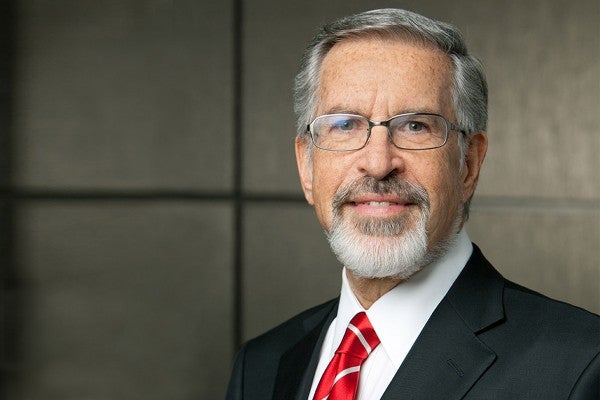Reality Check for Health Care
The Schaeffer Center teams up with the Brookings Institution to advance better U.S. health care policies.
As Medicare passes its half-century mark, growing numbers of Americans will depend on it for health care—reaching as many as 80 million people by 2035. But how will the U.S. afford to provide care under the program for the mounting burden of chronic diseases?
At the same time, policymakers are looking for ways to improve the Affordable Care Act so that it expands coverage cost-effectively, while keeping the nation healthy. They must also grapple with how to curb rising health care costs while encouraging medical innovation.

These pressing health care issues require policy research—the kind advanced through a $4 million gift from Leonard D. Schaeffer, USC trustee and the Judge Robert Maclay Widney Chair and professor at the USC Price School of Public Policy. This latest gift from Schaeffer establishes the Leonard D. Schaeffer Initiative for Innovation in Health Policy, a partnership between the USC Schaeffer Center for Health Policy & Economics and the Center for Health Policy at the Brookings Institution in Washington, D.C.
By integrating the collaborative strengths of USC and Brookings, the initiative aims to inform the health care debate with evidence-based analysis leading to practical recommendations to improve population health. In addition to Medicare, the initiative will focus on shaping the Affordable Care Act to improve outcomes and on maximizing the value of innovation in drugs and medical devices.
“Health care spending has soared to $3 trillion a year and massive disruptions are underway in America’s health care system,” Schaeffer says.
Responsible for the turnaround of Blue Cross of California as its CEO, Schaeffer went on to become founding chairman and CEO of WellPoint, one of the nation’s largest health insurance companies. In the public sector, Schaeffer oversaw the reorganization of the Health Care Financing Administration (now the Centers for Medicare & Medicaid Services), which integrated Medicare and Medicaid in the 1970s.
Paul Ginsburg, a health economics and policy expert, directs the joint work of the new Schaeffer Initiative. Ginsburg, a professor at USC Price School, holds the Leonard D. Schaeffer Chair in Health Policy Studies at Brookings, where he also directs the Center for Health Policy.
The USC Schaeffer Center is a partnership between USC Price and the USC School of Pharmacy.
